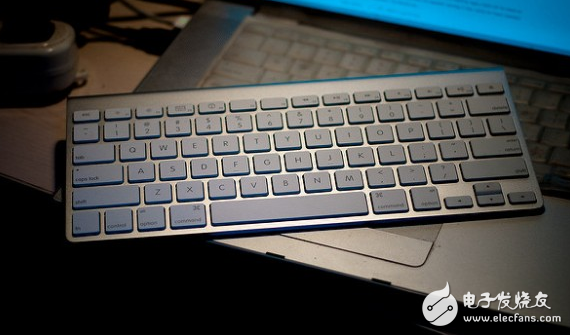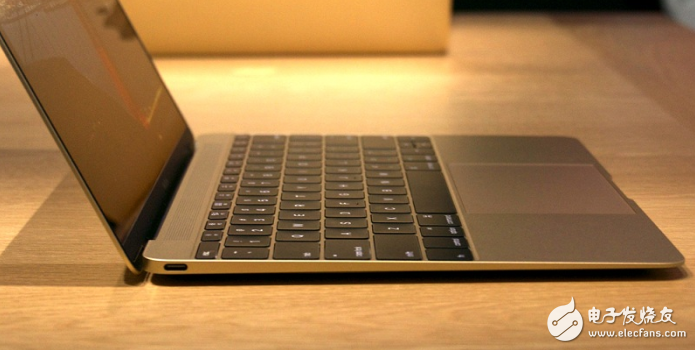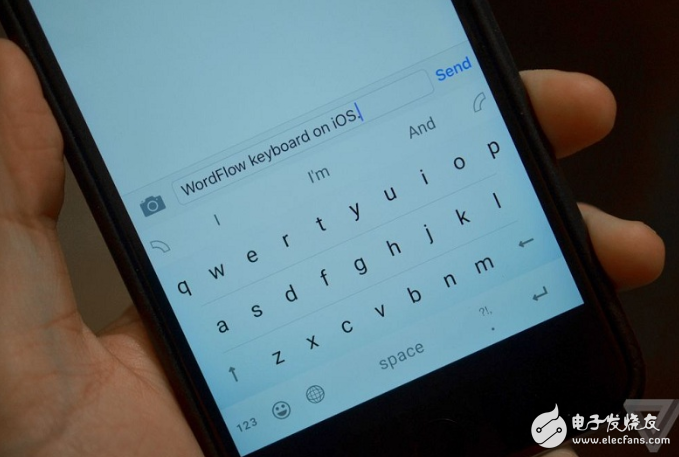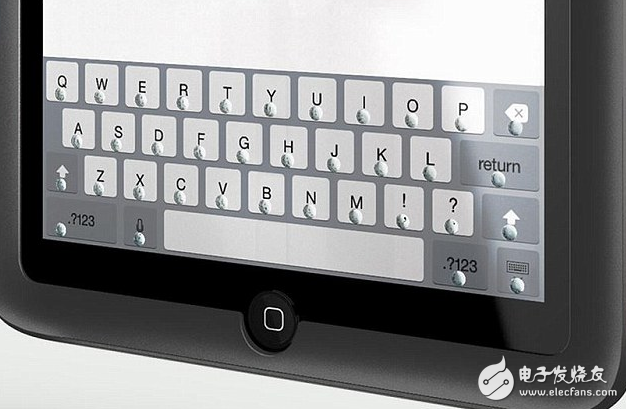Previously, in the article "There is no physical keyboard? Maybe this is the future of MacBook", I mentioned that Apple regards "the physical keyboard" as the future. However, many netizens also have a message at the same time. This is not the idea that Apple has. Some technology companies in the market have developed some designs without physical keyboards.

When we spit on the iPad, there is no productivity without the keyboard, but there are a lot of technology companies dedicated to the extinction of the human physical keyboard... What is this all about?
Original sin of the physical keyboard
Let us first rule out the feelings of falling in love with the mechanical keyboard because of the "mechanical sense" of the keyboard: Suppose you are sure that you don't need to type or use any shortcut keys. Do you still want to bring a keyboard out? Generally speaking, you may not want to bring a bulky thing out.

The physical keyboard is not flexible. Although the physical keyboard of the workshop has different kinds of changes, it can't be changed like a screen. It can change the shape, change the arrangement, change the shape at any time, let it appear when you like it, and let it disappear if you don't like it. Therefore, if we can completely use the virtual keyboard, the way of human-computer interaction can be more diversified.
The physical keyboard is not portable enough. Anyone who has used the New MacBook (above) knows: How awkward is typing on that ultra-thin keyboard? But don't you have this awkward keyboard? It is difficult to be light and thin.
For manufacturers, the ultra-thin notebook keyboard is not easy to design, and the cost is naturally higher. What's more, in order to cost down the manufacturers in the fierce competition, the ultra-thin keyboard is cheaper and wants to save.
That's why we always want to eliminate the physical keyboard: because if you don't type, the keyboard is just a non-burnable garbage.
Why do humans need a keyboard?
Even so, why can't humans use the keyboard for decades? That's not because we have deep feelings about the keyboard, but we can't do without the keyboard:

We can't have words when we communicate. Maybe we can use the language instead of text on the phone, but on the computer, text input is still very important.
A virtual keyboard can replace the keyboard, but the virtual keyboard on the screen is just the best keyboard replacement available, but it is not a satisfactory replacement. Don't talk about the problem of poor hand feeling. At least we can hardly blindly play through the virtual keyboard, and the typing efficiency will be greatly affected.
To put it simply, at present we only need to input text on the computer, and the physical keyboard is still the best in terms of efficiency and experience.
Why can the phone eliminate the physical keyboard?
However, why did it take Apple a few years to get rid of the phone's keyboard? That's not Apple's own killing, but the user "does not like typing on the phone."
For many users, mobile phones have never been a good text input tool. Although during the most prosperous period of BlackBerry, many people in the workplace need to use it to send emails; but even with a physical keyboard, the experience of typing on a small screen is not ideal. Because the screen of the mobile phone is too small, an ultra-thin body, a good screen, and an easy-to-use user interface are more important to the user than the physical keyboard: we would rather use a mobile phone to listen to music and play. Games, online, and unintentionally often squeezed on the small physical keyboard typing (below).

However, this does not mean that we do not want to type on the phone, we just prefer to transfer the typing function to the computer. Although many tablets are used as game consoles, e-books or audio-visual tools, users don't mind that they don't have a keyboard. In the workplace, many people use tablet computers to be cash registers, when they are drawing boards, and when they show Tools, too, can't use the keyboard. But when we don't want to use mobile phones to type, the big screen tablet and laptop are an important "typing" tool, and the importance is increasing.
Keyboard Extinction Project A: Optimized Virtual Keyboard
In the generation just entering the smart phone, when we are still rethinking the importance of the physical keyboard, many technology companies want to replace the physical keyboard with a virtual keyboard. Undoubtedly, virtual keyboards have always been plagued, but we are still working to optimize virtual keyboards to improve the harsh handling feel, including:
Reduce the operating time of the virtual keyboard. Since we feel that the virtual keyboard is not easy to use and the efficiency is not high enough, the best way is of course to improve input efficiency and reduce usage time. For example, use the Lenovo word for "one-click input" and use a swipe gesture like Swype to avoid frequent tapping of the screen. However, even if this program is currently the most commonly used "keyboard extinction program", its help is actually only better than nothing.
Set feedback for the virtual keyboard. The virtual keyboard is difficult to blindly play, one of the reasons is that it does not have feedback. At a time when touchscreens became popular, smart devices like the Viliv S5 and the BlackBerry 9500 Storm tried to add feedback to the virtual keyboard. Unfortunately, its false feedback did not bring a good experience. Later, Apple's Tapic Engine felt quite good, but Ai Faner pointed out that its monotonous pressing feeling is also difficult to bring realistic feedback to the global keyboard.
Add a touch to the screen. This solution will probably be the best "keyboard extinction" solution, but it may also be the most technically immature virtual keyboard solution. As early as 2010, Nokia has developed Senseg's touch-sensitive screen. Microsoft also applied for a patent with a touch screen in the same year. It is also rumored that Apple planned to launch a touch screen using Senseg technology in 2012. But no matter whether it is Nokia, Microsoft or Apple, the products with touch screens were not put on the table. Ironically, even Senseg was acquired by Shenzhen company. If we really want to focus on the virtual keyboard, we can only use this props (below).

Pcb Pluggable Terminal Block Connector ,Pluggable Terminal Block,Contact Pluggable Terminal Blocks ,Pluggable Screw Terminal
Cixi Xinke Electronic Technology Co., Ltd. , https://www.cxxinke.com